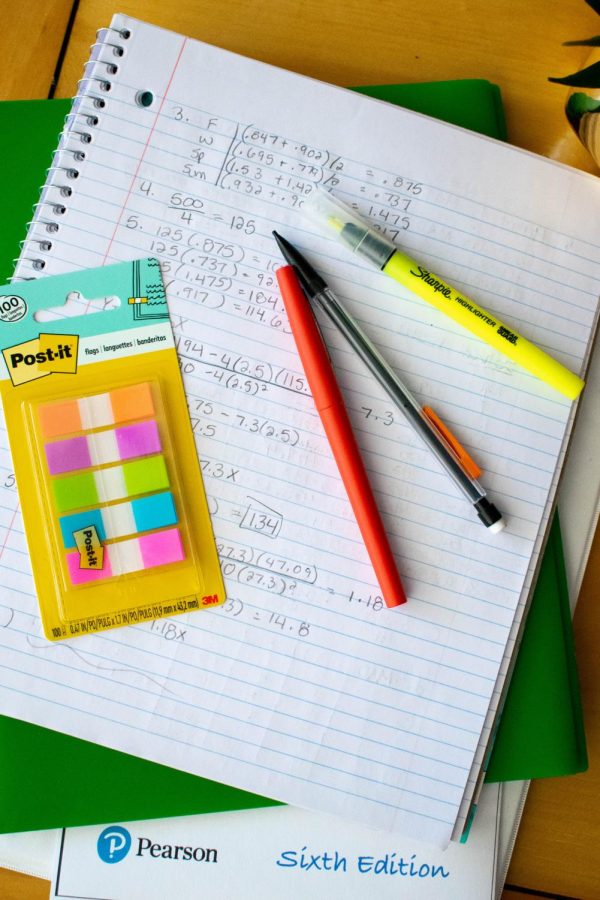University efforts to promote affordable course materials
The average cost of course materials equates to the cost of over two credit hours at OU.
During the 2019-2020 academic school year, the average cost of materials and textbooks for a full-time undergraduate student reached almost $1,300 at public universities. At OU, the baseline tuition rate falls between $467 to roughly $585 per credit hour, factoring in differential rates and upper and lower level course rates.
The average cost of course materials equates to the cost of over two credit hours at OU. While these rates are unique to the university, the issue is observed across the country. Nearly 66% of students nationwide will avoid purchasing textbooks, when possible, due to pricing.
To combat the expense of course materials, primarily textbooks, OU launched the Affordable Course Materials Initiative (ACMI) maintained by a group of faculty known as the ACMI team.
The efforts to implement affordable course materials began in September 2017 with the formation of the College of Arts and Sciences Open Educational Resources (OER) task force. OER includes educational resources available in the public domain or that hold an intellectual property license which allows for free use and repurposing.
In February 2019, after resolutions were passed and the initiative was endorsed, the ACMI was officially launched and the ACMI Team was formed. Julia Rodriguez, ACMI team lead and OU libraries associate professor, states the Provost initially funded ACMI with $5,000 to aid in the transition to low or no cost courses.
Rodriguez notes part of ACMI’s work lies in helping faculty members transition their courses to no or low cost, meaning the textbook materials can be accessed free through OER or the cost of the materials is $40 or less.
The ACMI team began providing stipends in winter 2020 to incentivize faculty members to convert their courses to low or no cost. The team is accepting applications for the third round of stipends until April 13. Beginning the fall semester 2022, students will be able to see which course offerings are considered low or no cost as they register through MySAIL.
OU Student Congress (OUSC) has also been involved in the push for more affordable course materials, utilizing their organization’s platform to bring attention to the increasing expense of college and necessary materials.
Murryum Farooqi, OUSC student body vice president, and Andrew Romano, OUSC student body president, state OUSC matched the university’s $5,000 funding after they were informed about the return on investment, which Rodriguez notes was between approximately $14,600 and $40,000 in fall 2020.
Farooqi additionally noted that the matched funding was also a push-back against the university saying that if a student organization is able to match this value, OU should be providing more to fund the initiative.
OUSC has additionally promoted the implementation of affordable course materials through their own organizational efforts. This semester, as part of their Trash the Textbooks campaign, they created 30 textbook scholarships, between $100 and $200, to aid in reducing the cost of course materials.
They additionally created a Trash the Textbooks petition calling for the university to invest in ACMI and implement Inclusive Access — textbook programs that allow students to choose to have their course materials purchased when they pay for tuition, resulting in a 40-80% decrease in cost as they are bought in bulk instead of individually — with $250,000 towards cost reducing programs.
Jeremy Johnson, OUSC speaker of the legislature, states that OUSC’s work to lower the cost of college for students expands beyond aiding ACMI. They intend to continue advocating for increased employment wages for students working on campus as well as promoting Inclusive Access.
Johnson, Romano and Farooqi all note that one of OUSC’s consistent goals is to lower the cost of college. Aiding the promotion of affordable textbooks with ACMI served as a major step towards achieving this goal and raising awareness regarding this added expense for students.
For more information regarding ACMI, students and faculty can visit the library guide to ACMI on the OU Libraries website.







